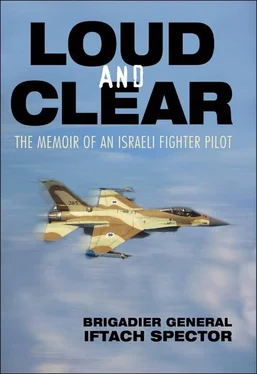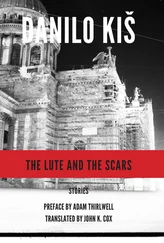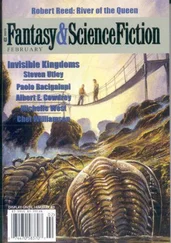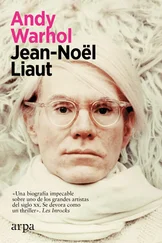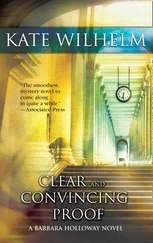One evening, when he was thirty-two years old, he went to the movies.
“The film was called The Land of Israel ,” he wrote in his simple hand. “I saw how they picked oranges, the field crops, and more interesting things, and liked it all. I decided to go there.”
He tried to get the passport that was necessary to allow him to leave Russia. “But because I had been a soldier, and there were rumors of war, it was difficult. So I tried something else. Since I had a daughter sick with bronchitis, the doctors advised taking her to a tropical country. This way I received permission from the government to go to the land of Israel for three months. I was delayed, for my wife gave birth. She bore another daughter, Shoshana. This was in February 1914,” he wrote.
Three weeks after his wife left the hospital, the family took a ship in Odessa and sailed to Israel.
“After a week at sea we arrived at Jaffa and stayed in a hotel. When we left the ship I managed not to give anyone my name, so they couldn’t find me later.” That didn’t help poor Tatar much.
That was Passover 1914. Within five months World War I would break out.
To this country, Palestine in 1914, Tatar came without a cent. Soon he found that manual labor was his only hope. Even that was not easy to find. His young family first lived in Jaffa, then moved ten kilometers east to a cheaper place, the Jewish settlement of Petach Tikva, established in 1878. There they lived on Tatar’s work in the orchards “for a tiny salary, the same as the Arabs,” tells Nathaniel, the former farm manager. “Even this kind of work was given me reluctantly, for the orchards’ owners contended that the work was too hard for us new immigrants and the salary too low for us to live on. There was only one kind of work where I could make some money, and it was mowing hay with a scythe. I had done this work.”
With visible pride he went on to tell how he became a subcontractor and employed others as workers, including men who became important later, such as Shkolnik (Levy Eshkol, fifty years later Israel’s prime minister), and Harzfeld (a future important political figure). He even employed the manager of the local labor exchange!
On August 14, 1914, World War I broke out.
The Turks, who governed the country, began checking the citizenship of every one of the inhabitants of Palestine, and either drafting them into the army or expelling them from the country. Tatar was captured.
“I took seven pairs of horses for deep plowing in Mikveh Israel (an agricultural school a few kilometers southeast of what was then the village of Tel Aviv). We had just gotten organized and begun working when some Turkish cops showed up. They ordered me to untie the horses from the plow and tie them to the carts. We were taken to Jaffa and put in front of the Sakkai (a Turkish military building). There we stayed till the evening. We sent a message to the horses’ owners in Petach Tikva and informed them what had happened.”
Tatar was always very careful with any property loaned to him, and his descendants inherited this from him. “But the owners were too afraid to come and defend their property, and told me to do my best. In the evening I entered the Sakkai and asked one of the officers why we were being kept there. He answered that come morning we would haul a load of cement to Beer- Sheva.”
The Moldovan estate manager turned teamster in Palestine was going to learn about the Ottoman Empire.
“We watched what happened in the Sakkai. In one of the rooms a commander sat, twenty large candles lit around him. From time to time he called in someone who had resisted confiscation of his property. The commander ordered punishment: fifty falaki (blows on the soles of the feet). This was the way it went all night—verdicts, the punishments executed on the spot, and the people around watching.” After this demonstration, there was no more resistance. The next day Tatar’s journey began.
“We loaded the cement barrels, and a week’s food for the horses, a barrel of water on each cart, and off we went without knowing where we were going, as all I knew about Beer- Sheva came from the Bible. We asked Arab passersby. One said ‘go north,’ the other pointed south. We decided to go to Rehovot, and see what to do from there.”
Rehovot was an agricultural settlement some thirty kilometers south of Jaffa. There, civilization ended and gave way to the wild, wild South.
“From Rehovot there was no road fit for carts going south, only camel trails. Thanks to the light loads on the carts we made it somehow, and after a day and a night we came to Kastina, a Jewish settlement.”
So they stopped at Beer-Tuvia, a small settlement among some Arab villages.
“We found there a warehouse, rested for four hours, and continued on our way. From there, there was really no more road, only a narrow trail crossing the wadis (dry streambeds). The barrels were rolling around in the carts and the cement spilled out of the cracks. Another day and night and we reached Kibbutz Ruchama.”
The name Ruchama came from the Bible. “Say ye unto your brethren, Ammi (my people), And to your sisters Ruchama,” said the prophet Hosea. “Ruchama” means mercy. “I will have mercy upon her that has not obtained mercy.” But Tatar didn’t know all that, and found no reason to stop there. The place was just a few acres with some shacks. There were fifteen workers planting almond and eucalyptus trees. They couldn’t help him with anything—they had brought their own bread from Beer-Tuvia with difficulty, and sometimes personal danger; the Bedouins would sometimes rob them on the way.
So he went on, “There in Ruchama, we found a big wadi with a narrow trail. One of our carts rolled over, and fell to the wadi together with the horses. We worked for half a day until we got it out.”
They were crossing the wadi system of Ruchama—a magnificent area, nowadays a national park with many beautiful bicycle trails. Then they came to a plain.
“We found ourselves in a desert of sand. The carts sank to their axles, and the horses couldn’t pull them anymore.”
Hold it.
There, in this vast plain, I crossed the footsteps of my grandfather Nathaniel for the first time. This happened after I parachuted from my burning Ouragan after an aerial collision. I landed in a desert full of shallow hills, south of Ruchama. I hit the ground, rolled in the floury dirt, and got to my feet. Not far away, I saw a bunch of black, low tents, pitched in what my grandfather had called sand. In fact it was thin, reddish dust.
Bedouins came and gathered around me, interested in my gear. The hot November wind of 1964 stung my burned cheeks awfully, but certainly less than the hamsin (the east wind from the desert) of August 1914, when Tatar and his drivers had struggled to pull their carts through. Finally they had found a solution.
“We tied two pairs of horses to one cart, then drove five kilometers ahead and came back to take the next cart. In this way we advanced fifteen kilometers a day.”
Finally they arrived in Beer-Sheva tired, hungry, dirty, and covered with dust.
“I found a military office. A senior Turkish officer sat there. Luckily he could speak Arabic. From the initial load of 2.8 tons, only about one ton was left, but I told the cart drivers to move the barrels in a way that they seemed heavy.” Tatar was cunning, but he didn’t know the Ottomans yet. “The soldier didn’t even approach to see if there was anything inside the barrels.”
If he thought his mission ended, he was wrong. His story had just begun.
“The commander called me and asked if I had a bag. I told him I hadn’t. He opened his desk drawer and counted eighty-four Turkish pounds in gold. He produced a cloth bag and put it together with a letter, and said we had to deliver pipes from Ramleh—an Arab town near Rehovot—to Kusseima, in the heart of the Sinai desert. That meant two weeks in each direction.”
Читать дальше
